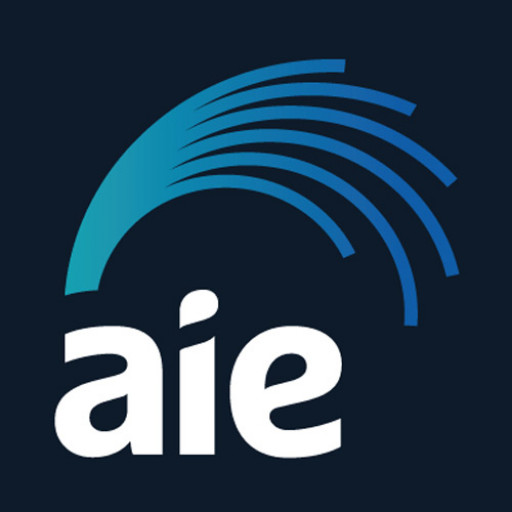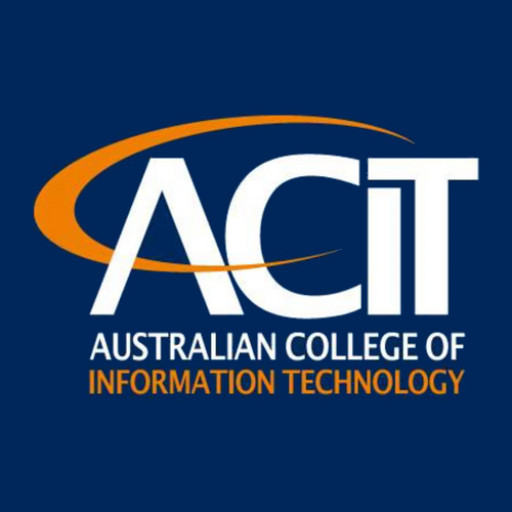The Bachelor of Information, Digital Media and Technology at TAFE South Australia is a comprehensive undergraduate program designed to equip students with the essential skills and knowledge needed to thrive in the rapidly evolving digital landscape. This dynamic course offers a blend of theoretical foundations and practical applications across various fields including information technology, digital media, software development, cybersecurity, and multimedia production. Throughout the program, students engage with cutting-edge technologies, industry-standard tools, and innovative methodologies to develop their proficiency in designing, implementing, and managing digital solutions. The curriculum is carefully structured to foster problem-solving abilities, critical thinking, and creative innovation, preparing graduates for diverse careers in the digital sector. Students have opportunities to work on real-world projects, collaborate with industry partners, and gain hands-on experience that enhances their employability. The program also emphasizes the importance of ethical considerations and data privacy in technology development, ensuring students understand the social and ethical responsibilities associated with digital media and IT roles. Graduates of this program are well-positioned to pursue careers in areas such as web development, digital marketing, multimedia design, network administration, and software engineering. With access to state-of-the-art labs and resources, as well as dedicated industry internships, students are supported throughout their learning journey to achieve their professional goals. Upon completion, graduates will possess the technical expertise, creative skills, and ethical awareness required to excel in the ever-changing digital world and contribute meaningfully to technological advancements in various industries.
The Diploma of Information, Digital Media and Technology at TAFE South Australia is a comprehensive program designed to equip students with essential skills and knowledge in the rapidly evolving fields of information technology, digital media, and related disciplines. This qualification provides learners with a solid foundation in core IT concepts, including systems analysis, network infrastructure, cybersecurity, programming, and data management. Throughout the course, students engage in practical and industry-relevant projects that enhance their technical proficiency and problem-solving abilities, preparing them for a variety of career pathways in the digital economy.
The program emphasizes hands-on learning through real-world projects, allowing students to develop expertise in designing and implementing digital solutions tailored to organizational needs. In addition to technical skills, students explore topics such as user experience design, digital content creation, and effective communication within technology environments, fostering a multidisciplinary approach to digital media and technology. The curriculum is regularly updated to align with current industry standards and emerging trends, ensuring graduates are well-equipped to meet the demands of the modern workforce.
Students will have opportunities to learn about system development life cycles, cloud computing, mobile applications, and database management, gaining not only technical competence but also critical thinking and project management skills. The program is suitable for individuals interested in entering or advancing within fields such as IT support, software development, digital media production, or data analysis. With a focus on innovation and practical application, graduates of this diploma are prepared to contribute effectively to digital transformation initiatives in various organizations.
Throughout the course, there is also an emphasis on developing teamwork, communication skills, and lifelong learning habits, which are essential attributes in the fast-changing digital landscape. Upon completing the Diploma of Information, Digital Media and Technology, graduates may pursue further education opportunities or seek employment in a variety of technology-driven roles. This program aims to empower students to become confident, capable professionals who can adapt to technological advancements and contribute positively to their communities and industries.
Program Requirements:
To enroll in the Information, Digital Media and Technology program at TAFE South Australia, applicants must meet certain prerequisites and selection criteria. Typically, prospective students for this field should possess a relevant Australian Year 12 qualification or an equivalent qualification recognized by TAFE SA. Prior knowledge or experience in computing, information technology, or digital media may be advantageous but is not always mandatory for entry. The program aims to develop skills in various digital and technological areas, so applicants should demonstrate an interest or background in information systems, multimedia production, programming, or related disciplines.
Applicants are generally required to submit a completed application form along with supporting documents such as academic transcripts, proof of identity, and evidence of English language proficiency if English is not their first language. Specific English language requirements are usually set at a certain level, such as an IELTS score of 5.5 or equivalent, to ensure students can successfully participate in coursework that involves technical reading, writing, and communication in English.
The selection process may involve an interview or eligibility assessment to evaluate the applicant’s motivation, learning capacity, and suitability for the program. Some courses may require a portfolio or demonstration of prior work in digital media or ICT to assess practical skills. Additionally, applicants might need to meet health and safety requirements or provide background checks if the program includes practical placements or work-based components.
For international students, there are additional visa and health insurance requirements, and they must meet the English language proficiency standards mandated by the Department of Home Affairs. It is recommended that applicants check the specific entry requirements listed on the TAFE SA website for the year they plan to enroll, as prerequisites and selection criteria may change periodically.
Candidates should also consider completing any preliminary courses in digital literacy or introductory computing if they feel they need to strengthen foundational knowledge before commencing the program. Enrolling in relevant preparatory workshops or introductory modules offered by TAFE SA can be beneficial.
In summary, admission to the Information, Digital Media and Technology program at TAFE SA involves meeting educational prerequisites, demonstrating relevant skills or interests, submitting proper application documentation, and possibly completing interviews or assessments. Ensuring compliance with language and health requirements facilitates a smooth admission process. Successful students are typically those with a strong interest in technology, creativity, and digital innovation who are committed to developing their technical skills through the comprehensive curriculum offered by TAFE South Australia.
The financing options for the Diploma of Information, Digital Media and Technology at TAFE South Australia are designed to support students in pursuing their studies without undue financial burden. Eligible students may access government subsidies such as the Australian Government's VET Student Loans, which provide income- and asset-tested loan assistance to help cover tuition fees. This scheme allows students to defer repayment until their income exceeds a certain threshold, making higher education more accessible. For domestic students, state-based concessions or subsidies may also apply, reducing the overall cost of enrollment. Additionally, TAFE SA frequently offers payment plans, enabling students to pay their tuition fees in installments over the course duration, easing immediate financial pressure. For those unable to access government funding, private payment options are available, including credit card payments or bank transfers. International students are typically required to pay full tuition fees upfront unless they qualify for specific scholarship programs or financial aid arrangements offered through TAFE SA or external organizations. Scholarships may be available based on academic merit, financial need, or specific eligibility criteria, providing additional financial support for qualifying students. Furthermore, some students might explore external funding sources such as educational loans from private financial institutions or sponsorships from employers interested in upskilling their workforce. It is recommended that prospective students contact TAFE SA's student services finance department or visit their official website to obtain the most current information regarding available financial assistance, eligibility requirements, application procedures, and deadlines. Understanding the variety of financing options ensures students can make informed decisions and plan their finances accordingly to embark on their educational journey in Information, Digital Media and Technology.
The Information, Digital Media and Technology program at TAFE South Australia is designed to equip students with essential skills and knowledge in the rapidly evolving fields of information technology, digital media, and related disciplines. This program provides a comprehensive foundation in core areas such as computer systems, networking, cybersecurity, software development, and multimedia production. Students will have the opportunity to develop practical skills through hands-on training and real-world projects, preparing them for a variety of roles in the technology sector.
The curriculum is structured to combine theoretical understanding with applied learning, ensuring graduates are ready to meet industry demands. Topics covered include programming languages, web development, database management, system administration, and digital content creation. The program also emphasizes problem-solving skills, critical thinking, and innovative approaches to technology challenges, fostering a workforce that can adapt to technological advancements and changing industry needs.
Participants will benefit from TAFE SA’s state-of-the-art facilities and industry partnerships, which facilitate internship opportunities and exposure to current practices in the field. The program is suitable for both entry-level students seeking a pathway into technology careers and those looking to upskill or reskill in specialized areas of digital media and information systems. Graduates of this program are well-positioned to pursue a variety of careers, including IT support technician, web developer, network administrator, digital content creator, cybersecurity analyst, and more.
The program often includes components of project management, ethical considerations in technology, and emerging trends such as cloud computing, data analytics, and Internet of Things (IoT). These elements ensure students are not only technically proficient but also aware of the broader context in which digital technologies operate. TAFE SA also offers pathways for further study, including advanced diplomas and degrees, allowing students to continue their education and specialize further.
Overall, the Information, Digital Media and Technology program at TAFE South Australia is dedicated to producing highly skilled professionals capable of contributing innovatively to the digital economy. It combines technical training with industry-relevant skills development, making it a valuable stepping stone for anyone looking to build a career in information and digital media technology sectors.









